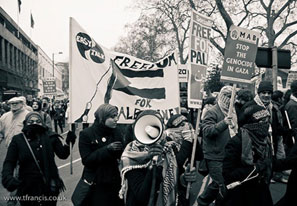
As a young graduate student in the early 1970s, I had the pleasure of listening to E. P. Thompson, the British labor historian whose book, The Making of the English Working Class, rippled like an electric current through liberal academia. As the aristocratic Thompson understood it, the imposition of a market economy on once self-sufficient English farmers led to the food riots in remote sections of the British countryside during the early eighteenth century. But when my mentor, Julius Rubin—a rumpled, soft-spoken economic historian at the University of Pittsburgh—responded that the towns where the food riots occurred were precisely those lacking roads to connect them with the emerging market economy, Thompson seemed taken aback. He had assumed, with ideological certainty, that capitalism induces poverty. But Rubin argued, with supporting evidence, that it was the absence of roads—that is, the absence of capitalism—that sparked the food riots. As they jousted back and forth, Rubin asked if Thompson could name a developed market economy that had suffered a food riot. The question left the loquacious academic celebrity temporarily speechless.
I was reminded of the Thompson-Rubin exchange in 1979, when I sat in a packed audience at the CUNY Graduate Center listening to Thompson explain that Jimmy Carter’s supposedly aggressive behavior had forced the Soviet Union to invade Afghanistan. Thompson’s audience, me included, did little to challenge him. But afterward, a heated debate broke out among young liberal professors who felt that Thompson had turned cause into effect and vice versa. Part of the appeal of such inverted arguments is that that they are not always subject to immediate empirical refutation.
Finally, a reason to check your email.
Sign up for our free newsletter today.
Time and again in recent months, I’ve heard inverted arguments on a range of topics. A devout anti-fracking activist, fighting to keep the southern tier of New York in Appalachian penury, assured me that the poverty of northern Pennsylvania was the result of the extraction of wealth-producing natural gas. But the evidence is to the contrary. While fracking has brought in some “roughnecks” and torn up some roads, it’s also brought rising incomes on the southern side of the New York-Pennsylvania border. On the non-fracking New York side, employment in metro Binghamton and Elmira has declined 12 percent since 2001.
In Gotham, Alex Vitale, a Brooklyn College professor, and MSNBC host Al Sharpton both claim that Broken Windows policing produces criminality by labeling otherwise law-abiding black youths as criminals. But if Vitale and Sharpton were correct, then New York’s prison population should have increased as a result. That has not been the case. While the prison population of most states rose rapidly over the last two decades, New York’s, thanks to Broken Windows, declined.
CNN anchor Jake Tapper offers up another perverse argument, this one to explain the violence in Gaza. Tapper suggests that it is “hopelessness” in Gaza that’s produced the imperative to fire missiles and build tunnels into Israel. As Tapper and others who spout the Hamas line see it, Israel’s economic blockade of Gaza has engendered the poverty that leaves no choice but war. This is a bizarre argument, since Hamas needed massive quantities of imported concrete to construct the electricity-laden tunnels it used to attack Israel. Here, too, as with Broken Windows policing, an empirical record is available if Tapper had the inclination to consult it. When Israel, led by Ariel Sharon, withdrew from Gaza in 2005, it left behind a system of greenhouses which could have been used to employ and feed thousands of Gazans. But in an act of savagery, Hamas leveled those greenhouses. In the years since Israeli troops withdrew from Gaza, Hamas has started three wars with Israel, each time claiming that it had no choice but to initiate hostilities—often seconded by a suborned press that, whether by ideology, intimidation, or a mixture of both, has toed the Hamas line. Even if you take Tapper’s argument seriously, the three wars have done nothing to alleviate Gaza’s hopelessness.
If an honest reporter were to take Julius Rubin’s approach to Edward Thompson and look for examples of Israel initiating hostilities with Hamas, he would have to conclude that none exist. Just as capitalism doesn’t create poverty outside the precincts of academia and its anti-modern adjuncts, Israeli policy doesn’t create poverty in Gaza. Not even Jimmy Carter was foolish enough to buy that sort of “reasoning.”